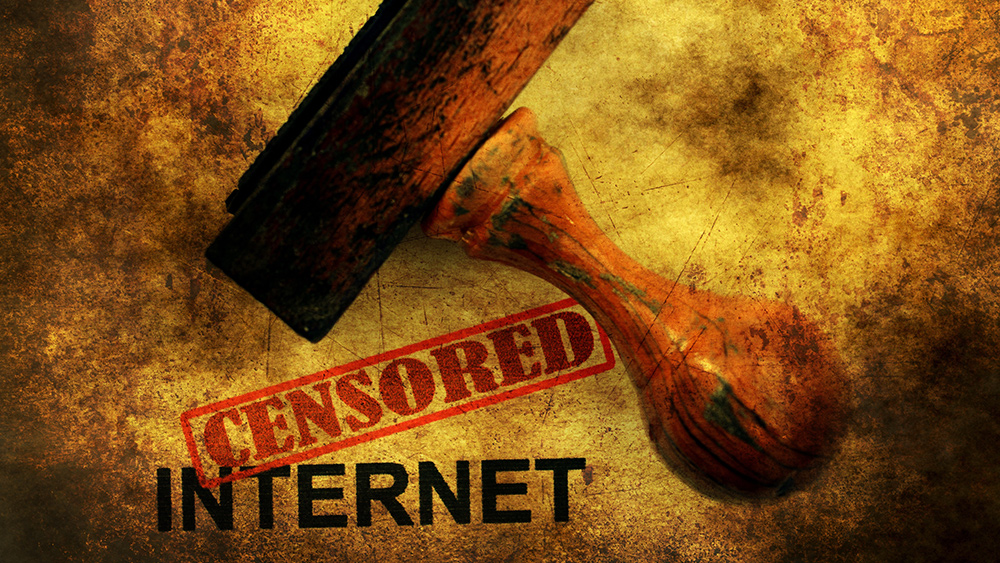ASPI: China is hoping to export its domestic online censorship around the world
11/25/2021 / By Mary Villareal

The Australian Strategic Policy Institute (ASPI) advised governments worldwide to err on the side of caution when engaging with Beijing or international bodies heavily influenced by the communist regime, especially on the topic of shaping the internet’s future.
In a new report, the ASPI said that China is hoping to export its domestic online censorship around the world by influencing how global bodies shape the rules and values that govern cyberspace.
The report stated: “In serving as the leading voice in establishing an international governance system for cyberspace, China hopes for its own domestic governance of the internet to be emulated by multiple other jurisdictions and to reshape global norms.”
In doing this, the ASPI said China is enabling a division of cyberspace to create susceptible surveillance and ideological influence.
The report assessed China’s strategy to become a “cyber superpower,” its principle of “internet sovereignty” and its concept of “community of common destiny for cyberspace.” It also addressed how the Chinese could work to build a consensus on who will set the rules, norms and values of the internet.
Another thing that the ASPI warned governments about is the lack of comprehensive regulation around cyberspace, which they should be careful with when engaging with Beijing.
For instance, events such as the World Internet Conference may appear to be organized by an international community but is in fact organized directly under the Cyberspace Administration of China – an agency originally from the former Office of External Propaganda, which is responsible for managing online content in China.
China focused on controlling internet systems
Chinese President Xi Jinping has focused on controlling the internet for years to provide Beijing with what he described as “discourse power” over international communications.
In 2017, he shared a vision that uses technology to rule the internet by achieving control over every part of the system – from applications, content, quality and manpower. There were also talks about long-running concerns over “bifurcation” or “splinternet” between democratic nations and authoritarian regimes.
Countries like China, Russia and Turkey are placing heavy controls on internet usage. There is speculation of further development of the internet along geopolitical fault lines that could see the online world divided between an open and free internet and a heavily censored version.
China has been communicating with the International Telecommunication Union, a U.N. agency that is responsible for setting the standards of computing and communication issues. It is currently headed by Chinese national Zhao Houlin.
This information comes as nations are in discussion over new infrastructure that underpins the internet to make it more efficient and cope with rapidly changing consumer demands. (Related: China’s Xi Jinping wants to control the entire internet, leaked government documents show.)
Experts warn that Beijing and other authoritarian governments would seek to integrate “authoritarianism into the architecture underpinning the web” and give state-run providers more control over the users.
This is where Australian leaders expressed concerns, citing increasing cyberattacks from China and Russia. The Australian Senate earlier passed the Security of Critical Infrastructure Act 2018, which will give the Australian Signals Directorate (ASD) the authority to step in and take over the operating systems of certain companies in the event of a cyberattack.
Senator Jim Molan, a former Army major general, said not one country has applied its full cyber resources into attacking another country through cyberspace.
“We will only see the full cyber-capability of certain nations applied to other countries in the lead-up to, or actually in, war. And the prospect of war in our region is real,” he said. “These are worrying times.”
Read more stories about how China is trying to control the internet at CyberWar.news.
Sources include:
Submit a correction >>
Tagged Under:
big government, Censorship, China, communism, conspiracy, cyberwar, free speech, Glitch, Great Firewall, internet, internet sovereignty, national security, surveillance, Tyranny, Xi Jinping
This article may contain statements that reflect the opinion of the author
RECENT NEWS & ARTICLES
COPYRIGHT © 2017 GLITCH.NEWS
All content posted on this site is protected under Free Speech. Glitch.news is not responsible for content written by contributing authors. The information on this site is provided for educational and entertainment purposes only. It is not intended as a substitute for professional advice of any kind. Glitch.news assumes no responsibility for the use or misuse of this material. All trademarks, registered trademarks and service marks mentioned on this site are the property of their respective owners.



















